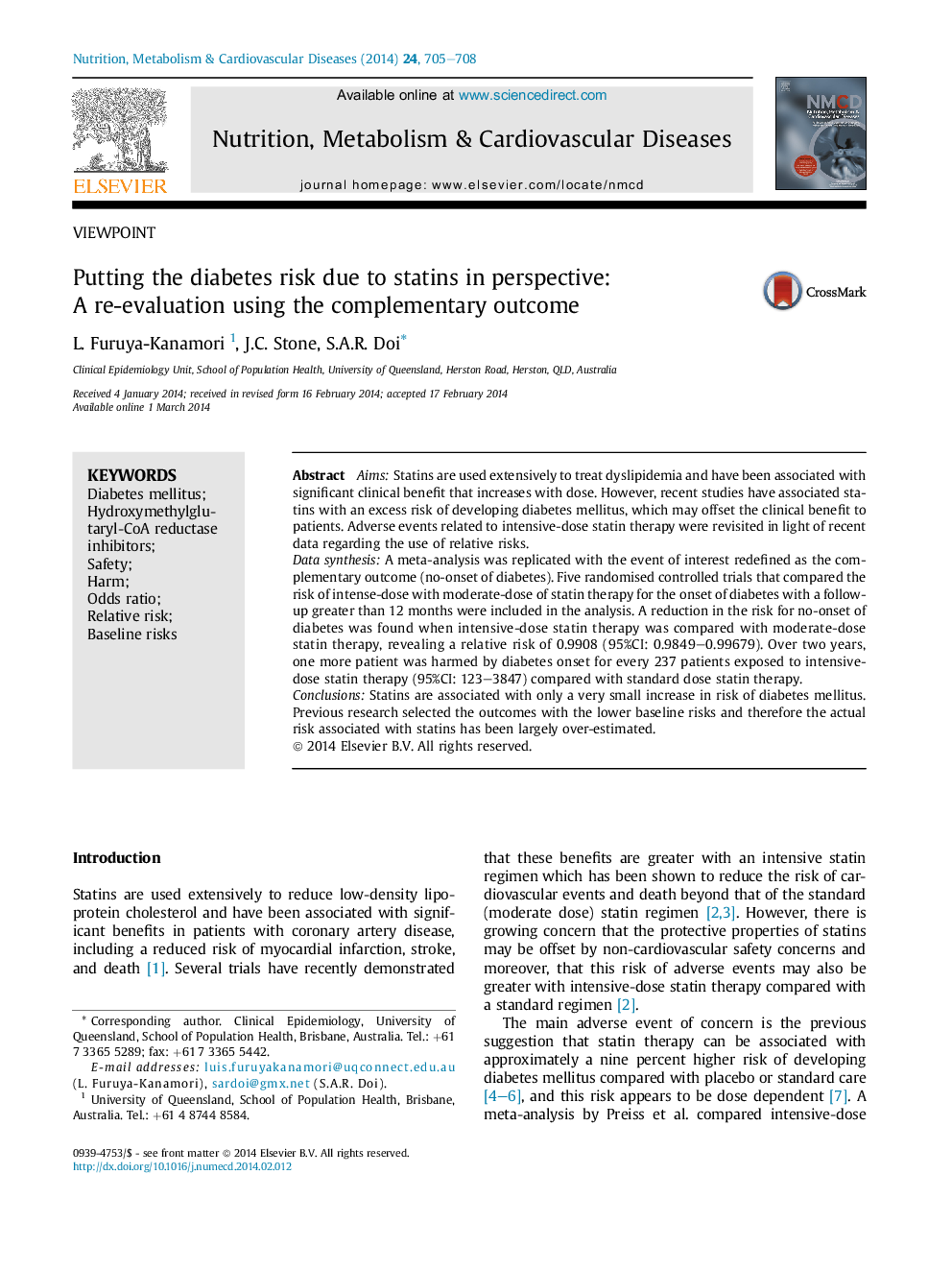| Article ID | Journal | Published Year | Pages | File Type |
|---|---|---|---|---|
| 3002078 | Nutrition, Metabolism and Cardiovascular Diseases | 2014 | 4 Pages |
AimsStatins are used extensively to treat dyslipidemia and have been associated with significant clinical benefit that increases with dose. However, recent studies have associated statins with an excess risk of developing diabetes mellitus, which may offset the clinical benefit to patients. Adverse events related to intensive-dose statin therapy were revisited in light of recent data regarding the use of relative risks.Data synthesisA meta-analysis was replicated with the event of interest redefined as the complementary outcome (no-onset of diabetes). Five randomised controlled trials that compared the risk of intense-dose with moderate-dose of statin therapy for the onset of diabetes with a follow-up greater than 12 months were included in the analysis. A reduction in the risk for no-onset of diabetes was found when intensive-dose statin therapy was compared with moderate-dose statin therapy, revealing a relative risk of 0.9908 (95%CI: 0.9849–0.99679). Over two years, one more patient was harmed by diabetes onset for every 237 patients exposed to intensive-dose statin therapy (95%CI: 123–3847) compared with standard dose statin therapy.ConclusionsStatins are associated with only a very small increase in risk of diabetes mellitus. Previous research selected the outcomes with the lower baseline risks and therefore the actual risk associated with statins has been largely over-estimated.
